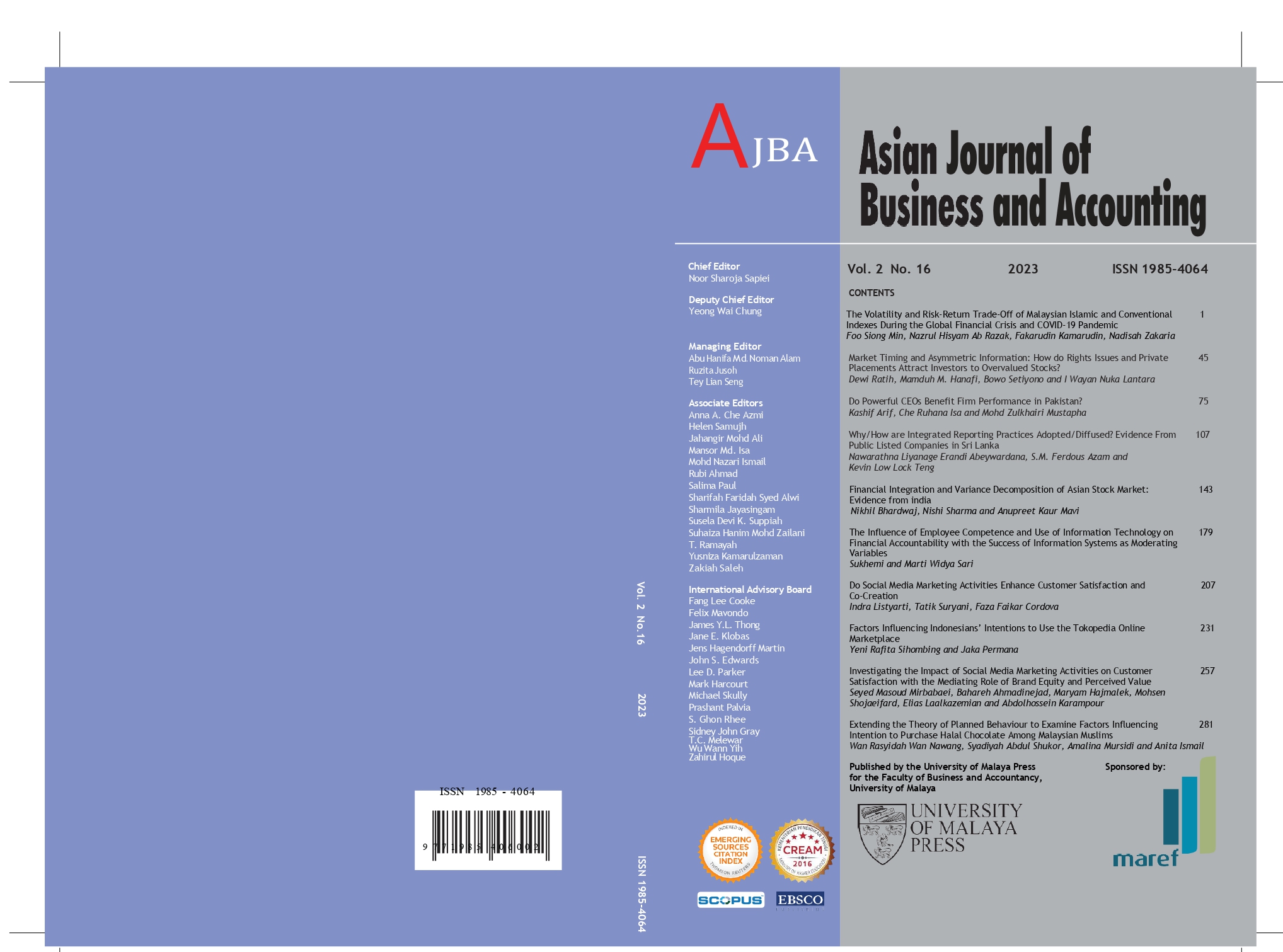Financial Integration and Variance Decomposition of Asian Stock Market: Evidence from India
Main Article Content
Abstract
Manuscript type: Research paper
Research aims: International investments made in non-integrated
economies provide benefits of portfolio diversification, but investment
made in integrated economies may lead to oscillations due to volatility
spillover. Therefore, the knowledge of market linkage of an economy is
imperative for investors, as well as regulators. In this context, the present
paper investigates the financial integration of the Indian stock market
with China, Hong Kong, Japan, UK and USA.
Design/Methodology/Approach: To examine the financial integration in
the long run, closing daily indices of leading stock markets of respective
countries have been analysed through the Johansen cointegration method
over a period of 20 years from 2002 to 2022. The vector error correction
model has been applied to examine whether market equilibrium can
be restored after an infusion of shock. The short run linkage has been
investigated through a causality test. Further the possibility of volatility
spillover has been examined through variance decomposition and impulse
response function.
Research findings: The results show cointegration among the selected
markets, which indicates the possibility of convergence towards market
equilibrium in the long run. The stock markets of India and USA were
observed to have a bidirectional causal relationship indicating lesser
chances of benefits from international portfolio diversification. The results reveal the sensitivity of the Indian stock market to innovations in the UK
and USA. However, no significant influence of the Hong Kong, Japanese,
and Chinese stock markets has been observed on the Indian stock market.
Further, the Indian stock market has a significant contribution to the
volatility of other stock markets, except the Chinese stock market.
Theoretical contribution/Originality: The present study is crucial owing
to two prominent reasons. Firstly, the linkage between various financial
markets is very dynamic and needs to be studied in the present context.
Secondly, the linkage of Indian economy with other countries has
increased manifolds in recent few years so it will be fruitful to analyse
the linkage of Indian economy with other economies.
Practitioner/Policy implications: The findings are useful to investors
while designing international portfolios to reap diversification benefits.
The results are fruitful for market regulatory bodies to mitigate the
adverse impact of volatility spillover.
Research limitation/Implications: The study can be extended to other
markets, monthly data and different sub-periods
